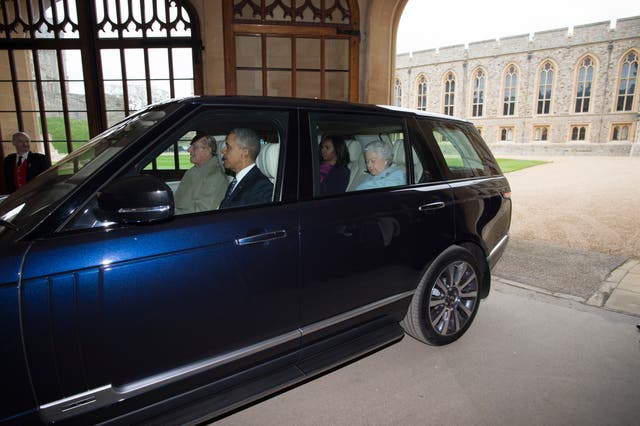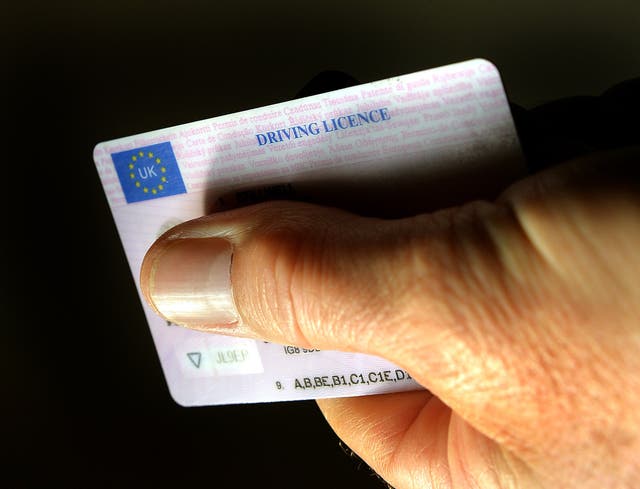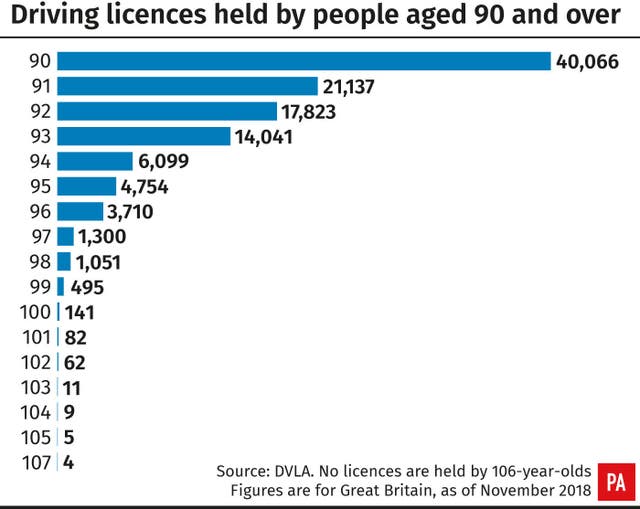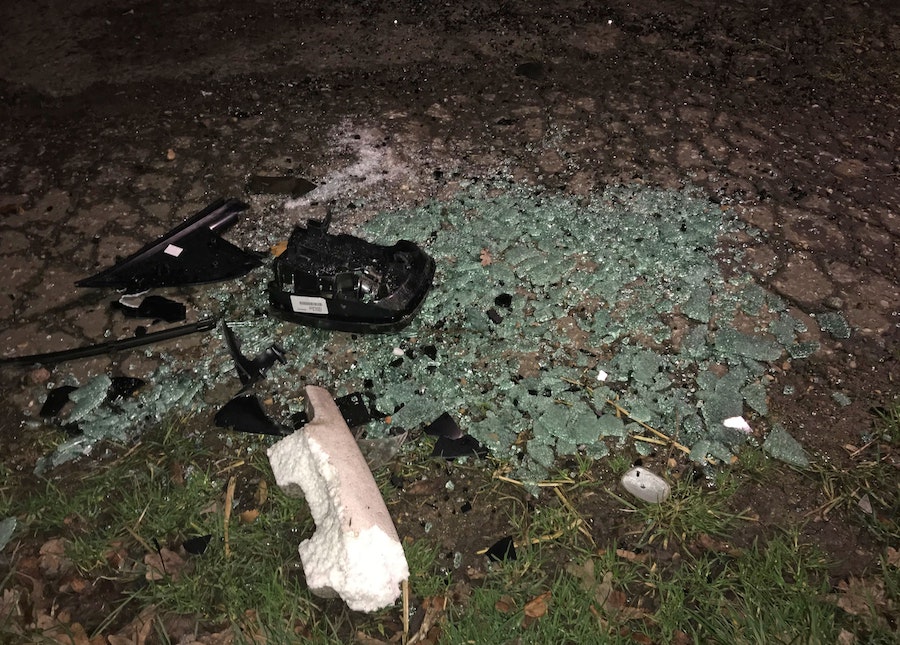Duke of Edinburgh crash: What are the rules for older drivers?
The Duke of Edinburgh’s car crash at the age of 97 has prompted debate around the safe age of drivers.
– What are the rules around older drivers?
When motorists reach the age of 70 in Britain they are required to renew their licence, and must do so every three years thereafter.
There is no driving test or medical examination, and it is down to drivers to declare whether or not they are fit to drive.
Applicants are urged to check with their doctor before applying and the Driver and Vehicle Licensing Agency (DVLA) may make further investigations based on the declaration made.
– What about eyesight?
The only mandatory examination of vision takes place during the practical test, when learners must read a number plate from 20 metres.
Once someone has obtained their licence, it is up to them to tell the DVLA if they have a problem with their eyesight.
Road safety charity Brake has called for a vision test to be required at least every 10 years when drivers renew their licence photocard.
– Is the duke known to be a keen motorist?
Philip is no stranger to the driving seat, and has previously been seen with very famous passengers in a Range Rover.

He showed former US president Barack Obama and his wife Michelle the personal touch when he drove them and the Queen to Windsor Castle after the presidential helicopter Marine One had landed close to the monarch’s Berkshire home during their visit to the UK in April 2016.
The gesture was akin to picking up guests from the airport, although the journey only lasted a few minutes. Mr Obama looked delighted when he discovered Philip would be driving them.
As the Queen and Mrs Obama sat in the rear seats, the duke looked composed at the wheel of the Range Rover as it made its way around the castle’s quadrangle and stopped outside the sovereign’s entrance.
– Why has Philip’s crash sparked debate?
The AA said car crashes involving older drivers can sometimes lead to calls for tighter rules or even bans.
But AA president Edmund King said GP and family advice is more significant than a person’s age when it comes to how long someone should keep driving.

Mr King said: “We wish the Duke of Edinburgh well. Many commentators use high-profile car crashes involving elderly drivers as a reason to call for bans or restrictions on older drivers.
“If driving restrictions based on age and safety were introduced we would be more likely to restrict young drivers rather than older drivers.
“Young, predominantly male, drivers are much more likely to crash within six months of passing their test than older drivers within six months of hanging up their keys.
“Older drivers often self-restrict their driving by not driving at night and only driving on familiar roads.
“The decision to hang up your keys is a tough one but should be based on personal advice from your GP and family rather than being based on some arbitrary age.
“We all age differently and the car is an essential lifeline for many elderly people.”

– Are there many people over the age of 90 who still have a driving licence?
Figures from the DVLA in November showed 110,790 people aged 90 or over still held driving licences.
There were 314 licence holders aged at least 100. The oldest were four people who were 107.
– What did the police do after the duke’s accident?
As is force policy, officers from Norfolk Police carried out roadside breath tests on the drivers of both vehicles, which proved negative.
They are now investigating the circumstances.
We’ve released a statement following a collision at #Sandringham earlier today. You can read it here >> https://t.co/gpTkpPU3Q1
— Norfolk Police (@NorfolkPolice) January 17, 2019
– What advice is there for older people who do give up their driving licence?
Age UK said such a decision can be difficult but that stopping driving does not have to mean the end of independence or mobility.
The charity said on its website: “If you’ve decided to stop driving, or been advised to by the DVLA, there are many ways you can get around and there may be help with transport costs.
“You may feel worried about the costs of giving up driving and having to pay for public transport, but if you add up the amount you spend on car tax, insurance, fuel and maintenance you may find that using alternatives work out to be less expensive than running a car.
“Most people find adjusting to life without a car is difficult at first. If you’re finding life without a car tough and causing you to feel down, talk to a family member, friend or your GP.”
The Press Association
Latest posts by The Press Association (see all)
- BBC to air two-part Call The Midwife Christmas special - December 23, 2024
- 6 mind sports to exercise your brain and keep you sharp - December 20, 2024
- Quiz: What classic Christmas food or drink are you? - December 20, 2024
- Leftover turkey and watercress pie - December 20, 2024
- Catherine and William choose family shot for Christmas card photograph - December 19, 2024




















